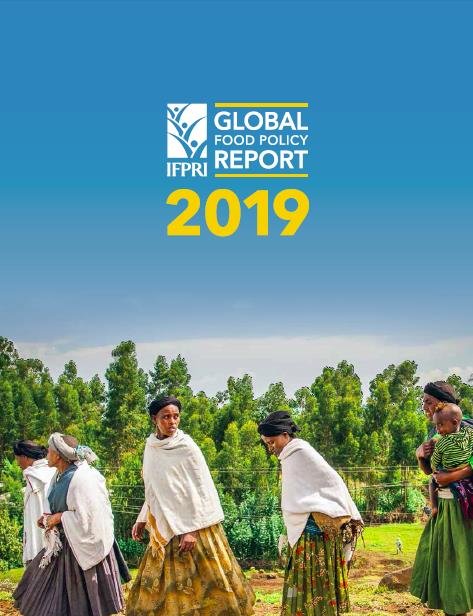- Share this article
- Subscribe to our newsletter
2019 Global Food Policy Report
The 2019 Global Food Policy Report was published by the International Food Policy Research Institute (IFPRI) in March 2019. According to the report, rural areas continue to be in a state of crisis in many parts of the world. This threatens to slow progress towards the Sustainable Development Goals, global climate targets, and improved food and nutrition security.
The majority of the world’s poor live in rural areas: rural populations account for 45.3 per cent of the world’s total population, but 70 per cent of the world’s extremely poor people. The global poverty rate in rural areas is currently 17 per cent, more than double the urban poverty rate of 7 per cent.
Rural areas remain under-served compared to urban areas and face a wide array of challenges across the globe: rural areas struggle with environmental crisis in China; severe agrarian crisis in India, and acute shortage of jobs for the growing youth populations in Africa. To overcome these challenges, the report calls for rural revitalisation. It highlights policies, institutions, and investments that can transform rural areas into vibrant and healthy places to live, work and raise families.
Five building blocks to revitalise rural areas
The report emphasises that rural areas could become premiere hubs of innovations in just under a decade. It recommends revitalising rural areas with a focus on five building blocks: creating farm and non-farm rural employment opportunities; achieving gender equality; addressing environmental challenges; improving access to energy; and investing in good governance.
Job creation is critical to reducing poverty in rural areas, especially in the rural areas of Africa south of the Sahara where poverty is high and youth populations are large. Policies that encourage investments in rural transport networks, telecommunications, and human capital in African countries can prepare rural youth for new jobs in rural and urban areas, and bridge rural-urban gap, according to the report.
To ensure all can participate and benefit from growth and transformation of rural areas, the report recommends investing in efforts that reduce general disparities. Beyond economic progress and human capital, rural environments must also be restored and improved to secure the many services they provide.
Achieving these policy goals require investments in good governance. The report identifies three aspects of governance critical for rural revitalisation: appropriate and predictable laws and regulations; effective policy implementation and enforcement; and accountability of those in positions of power and authority.
This year’s report also features chapters on how Europe’s experience can provide lessons for rural revitalisation in developing countries; food policy trends from Africa, Asia, Latin America and other regions; updated data on food policy indicators and more. The report is the latest in an annual analysis of developments in food policy around the developing world, based on the most recent available evidence
(IFPRI/ile)
More information and download the 2019 Global Food Policy Report: www.ifpri.org/publication/2019-global-food-policy-report





Add a comment
Be the First to Comment